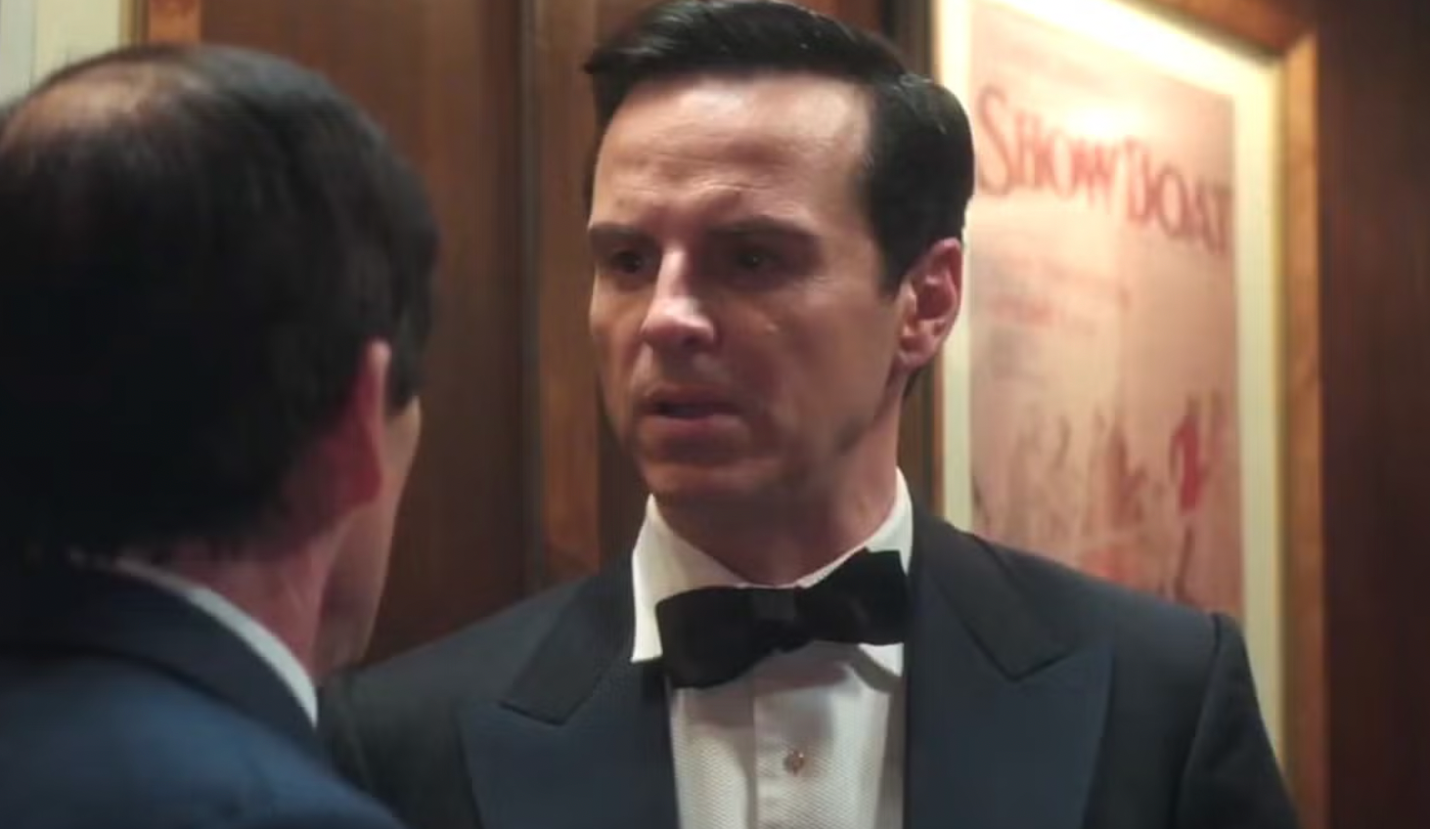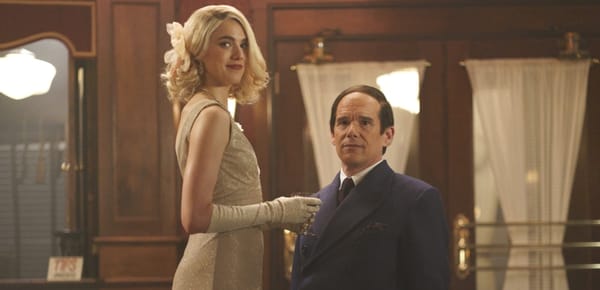★★★½ (3½ out of 4)
Ethan Hawke digs triumphantly into the most challenging role of his career in “Blue Moon,” a one-location, basically real time night in the too brief life of Broadway musical legend Lorenz “Larry” Hart (1919-1943). Despite Hart’s legendary, motormouth charm, “Blue Moon” starts with the great man blitzed-out drunk and near death crawling into a gutter in Manhattan, the great big city Hart once lyricized as “a wonderous toy just made for a girl and boy.”
Not this time. Hart was a prodigiously gifted lyricist. He wrote over 500 songs for 28 stage musicals, as well as several Hollywood films with composer Richard Rodgers. He also felt the prodigious weight of his own depression, stemming from his diminutive height (he was barely five feet), his closeted homosexuality, his alcoholism, and a crushing loneliness he often expressed in the words he put to Rodgers’s music.
“Blue Moon/you saw me standing alone/without a dream in my heart/without a love of my own,”
Hawke said that the physical transformation into Hart, which involved shaving his head leaving just a thin comb-over—was “demolishing to my vanity” as was the camera’s forced perspective that reduced his height about 10 inches to play a man frequently dismissed as the “shrimp.”
There’s every reason for 'Blue Moon' to be a hard sell with younger audiences. It’s talky, stagey, claustrophobically set in one place, and its subject is a balding, self-loathing alcoholic whose songs are hardly clickbait for the Bad Bunny crowd. It shouldn’t work. And yet it does, in ways that are funny, touching and vital.
Hawke and director Richard Linklater—this is their ninth screen collaboration and their first film together since 2014’s “Boyhood”—treat this movie like it means something personal to them and to the memory of Hart. And so we feel it too. Working from a script by Robert Kaplow (“Me and Orson Welles”), the Hawke/Linklater team takes stock of the creative process and the toll it can take on life and art. That’s what makes its appeal universal.
There’s every reason for “Blue Moon” to be a hard sell with younger audiences. It’s talky, stagey, claustrophobically set in one place on one night with barely a handful of major characters, and it’s subject is a balding self-loathing alcoholic whose songs are hardly clickbait for the Bad Bunny crowd. It shouldn’t work. And yet it does, in ways that are funny, touching and vital.
It’s March 31, 1943, and on this night at Sardi’s restaurant where the theater elite meet, Hart awaits the arrival of Rodgers (Andrew Scott), his friend and collaborator for over two decades.

But this time Rodgers has chosen a new lyricist, Oscar Hammerstein (Simon Delaney), and their new musical, “Oklahoma!” will dwarf anything by Rodgers and Hart, including “Pal Joey.” As Hart pans the show as cowboy hokum to Eddie the bartender (Bobby Cannavale), while flirting with “Knuckles” (Jonah Lees), a young pianist, he keeps booze flowing to pump up his bravado.
Hart has also brought along Elizabeth Weiland (a dynamite Margaret Qualley), a college student he’s mentoring and using as a show pony for a relationship that doesn’t exist because as Elizabeth says, she doesn’t “love him that way.”
It’s a setup for disaster that culminates in a brilliant scene on a Sardi’s stairway where Rodgers expresses his love for Hart and his disappointment in him as a creative partner who let his drinking distract him from the discipline that Rodgers needs to function.
Scott is simply perfection as Rodgers. This first-rate Irish actor, who came to fame as the “hot priest” on “Fleabag,” allows us to see the famous Rodgers reserve but also the rare tenderness he feels for the partner who let his addictions destroy their bond. What Scott and Hawke do on that stairway, under Linklater’s potently perceptive direction, is almost a one-act play on its own and a display of acting prowess that should put them both in the awards race.
Of course, “Blue Moon” belongs heart and soul to Hawke, who delivers a tour de force that swerves from hilarity to heartbreak, sometimes in the same scene. “Blue Moon’ is a tragedy that unspools with astonishing buoyancy and sneaky wit, as if no one told Hart or Hawke that this story should leave anyone gutted.
Hawke’s blazing performance t cuts through Hart’s barfly haze to reveal a startling sweetness and clarity. Over the film’s closing credits we hear the late, great Tony Bennett sing a Hart lyric that cuts right to the essence of Hart and this movie.
“This funny world makes fun of the things that you strive for
This funny world can laugh at the dreams you're alive for
If you're beaten, conceal it
There's no pity for you
For the world cannot feel it . . . “
Thanks to “Blue Moon” and the stunning virtuosity of Hawke and Linklater, we can feel it, leaving Hart less alone and the rest of us more aware than ever of this funny world’s cruelty and art’s capacity to heal. I’d call that some kind of wonderful.

